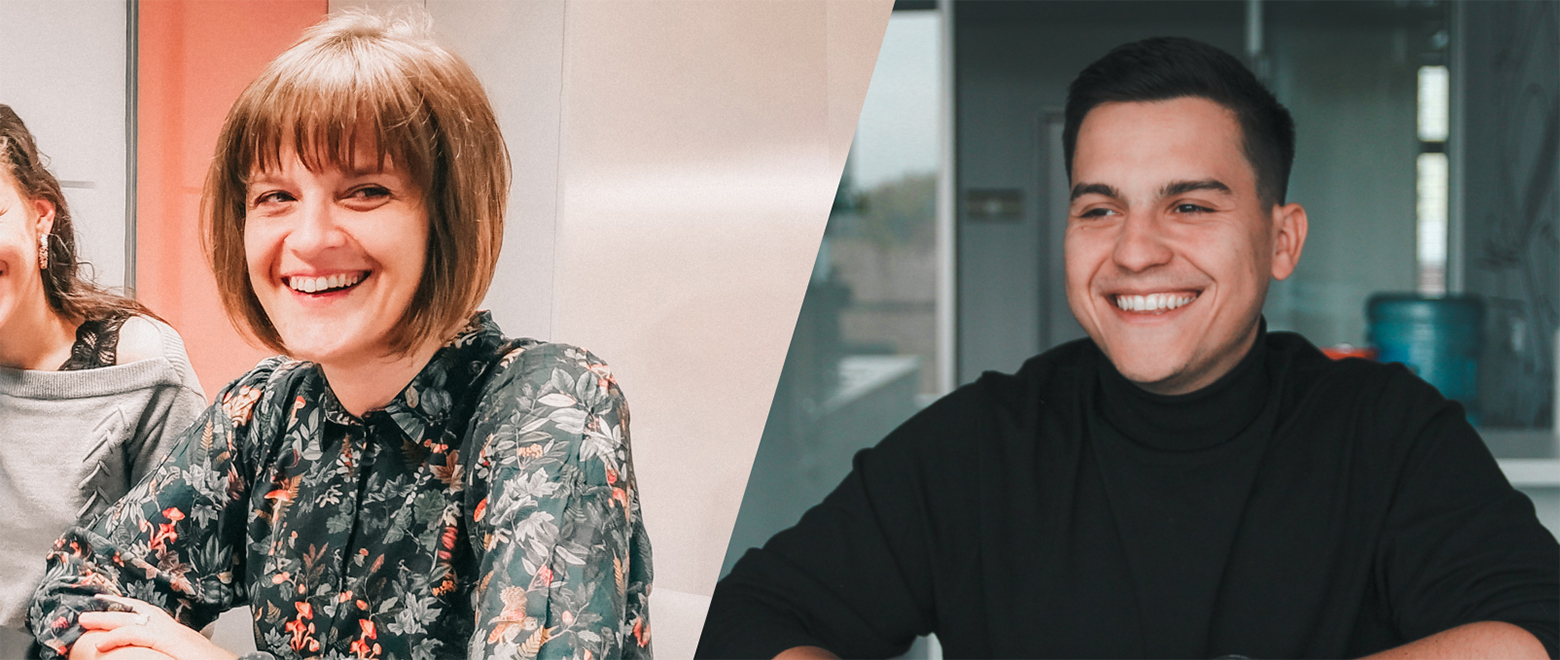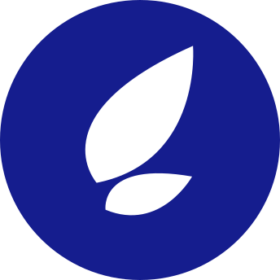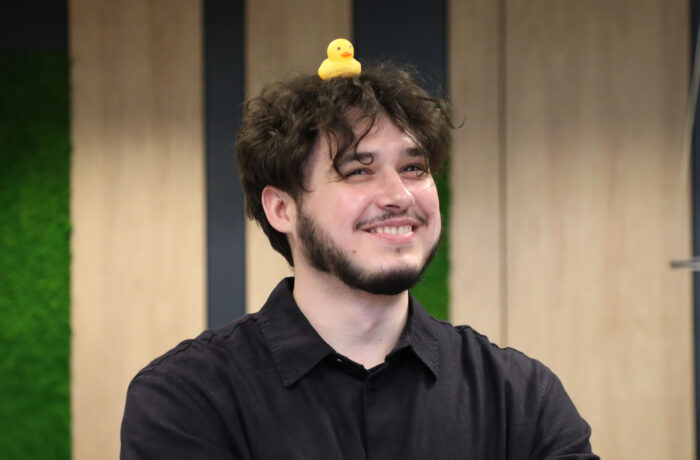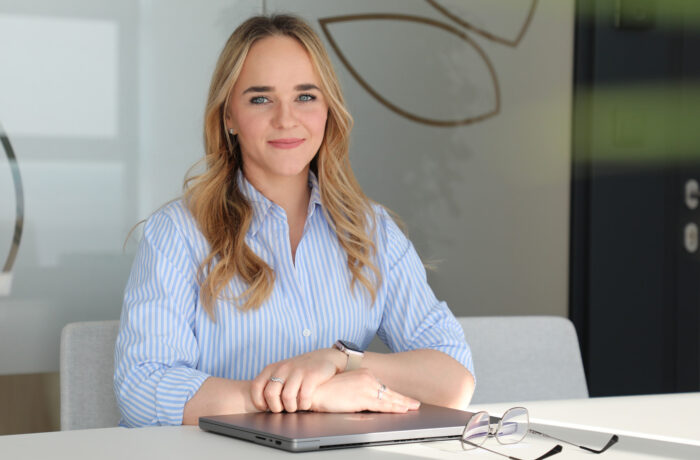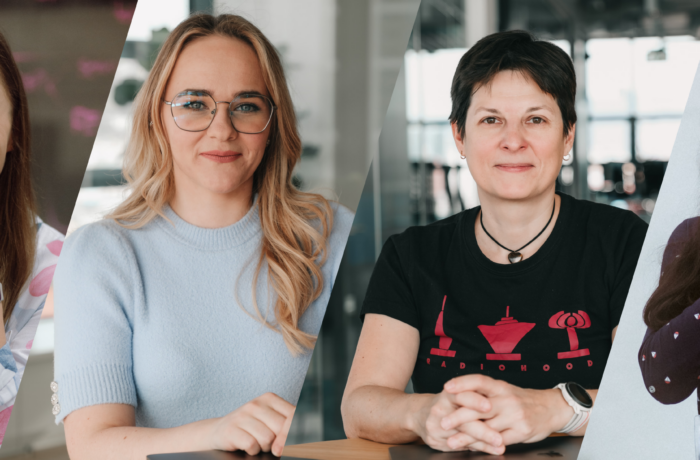In today’s performance-oriented, fast-paced society, it might seem almost impossible to live a life that’s not precisely planned step by step. Yes, we’re talking about choosing your future career path and that’s usually starting with picking the right university. However, oftentimes young people don’t find their passion in the field of their studies and many of them think it’s too late to turn the tables and move to something completely different.
That’s why we bring you stories of Robo, and Boženka, Senior QA Analysts of GoHealth Slovakia, — both of them majored in a field completely different from the IT world, but instead, they deep-dived into the wondrous world of programming. How did they pull it off?
We hereby encourage you to read their inspiring story and get motivated to change your career path if you’re feeling stuck or not happy at your current place!
Robo, you joined GoHealth more than 3 years ago and now you’re a Senior QA Analyst, tell us more about your journey and the evolution of your responsibilities.
Robo: I came here as a QA Analyst with 1-year experience. At that time, we were known as Creatix, and GoHealth was our #1 client (and our mother at the same time). We have worked on custom solutions for other partners as well, however.
I was lucky that I had been assigned to the GoHealth team working on their projects — it helped me greatly to adapt to their projects and technology stack right from the beginning. My more experienced and senior colleagues were patient and answered all of my questions — that helped me gain the knowledge I needed to be able to operate without any help and I have secured independence in many things.
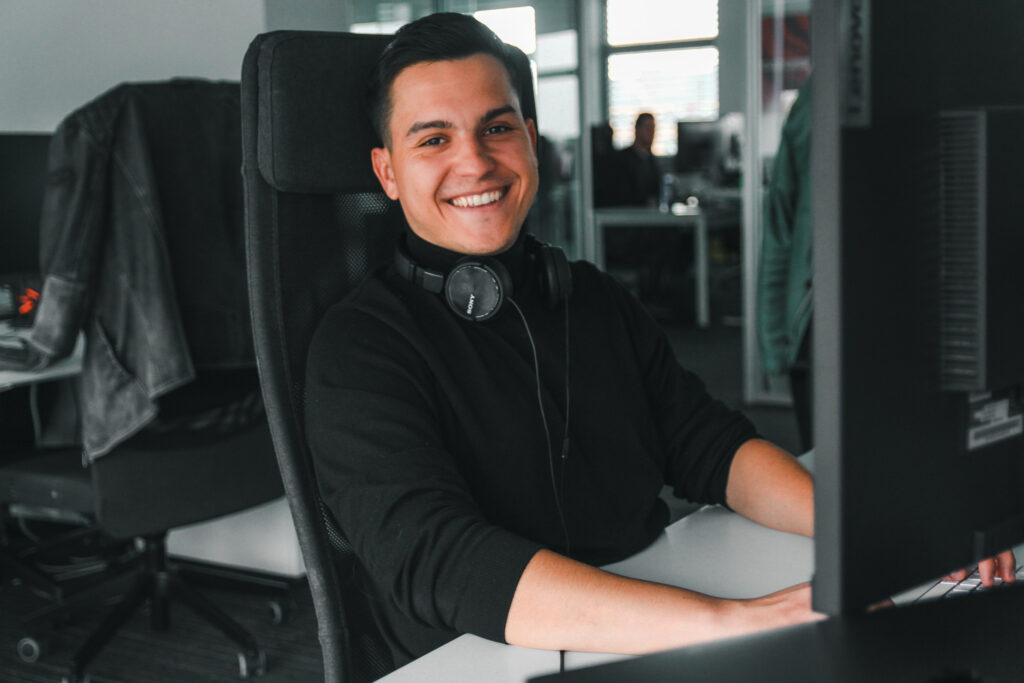
As soon as I gained know-how about our systems, I started helping and mentoring more junior colleagues — many of them are seniors now, which I’m really glad about. In addition to testing, I also started with debugging and data analysis. My other responsibilities include writing specifications as new
features that come as business requirements. These specs are then being automated. This as a whole allows for not only immense help when testing (launching automated tests) but also helps in orientation within the product itself.
Boženka, you’re with GoHealth for almost a year, what do you enjoy the most about your role as a QA Analyst?
Boženka: Before joining GoHealth, I’d worked as a QA Engineer. This position included manual testing as well as automation and I was keen to try what specializing in one of those areas would be like. Being a QA Analyst requires a lot of communication, within the team as well as across other domains. That’s certainly something I enjoy. It also provides us with space to explore the domain and keep learning.
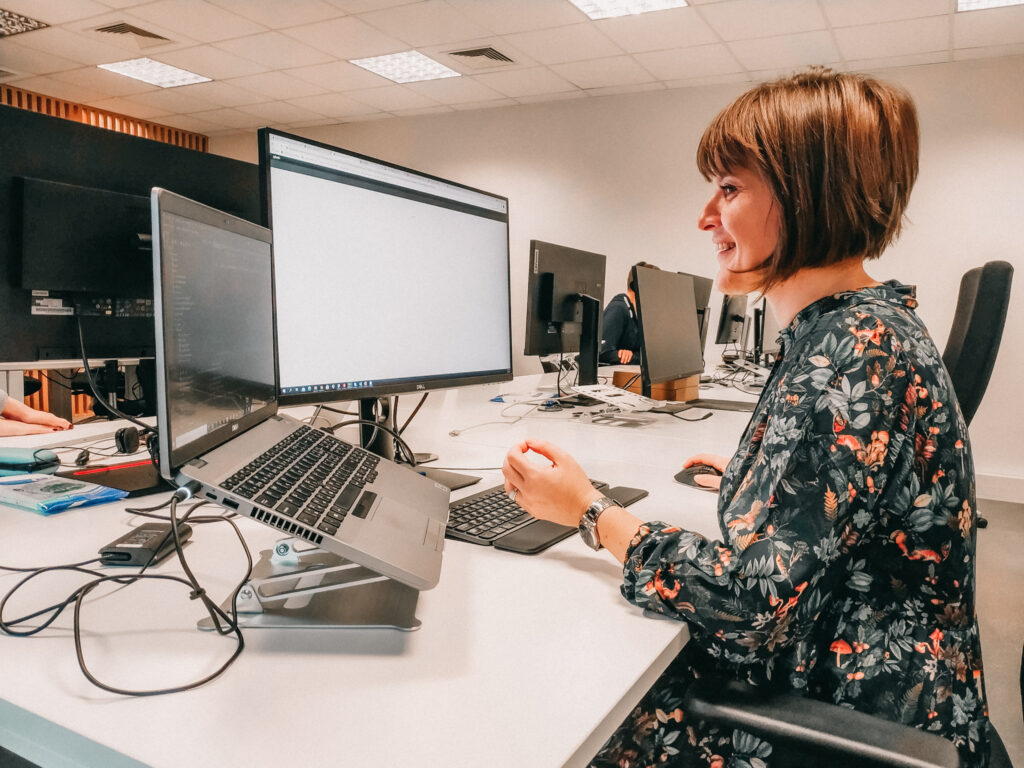
What’s your university major?
Boženka: To cut the long story short, I usually just say English 🙂 But I majored in British and American studies, a program covering linguistics, literature, history, translation, and interpretation. After graduation, I stayed at the university to teach full time and do my PhD.
Robo: As a former basketball player, I decided to focus on sports even during my studies, and I focused on Sports Management. This department is a mix of studies at the Faculty of Physical Education and Sports and the Faculty management, both at Comenius University. The department essentially focuses on the education of the future sports agents or managers in the field of sports club management, and so on.
What valuable knowledge did you gain during your university studies that is still applicable despite the different working fields you’re in now?
Boženka: Being proficient in English is the greatest asset I can think of and a major advantage in most IT companies. As a student, I was required to do a lot of research and writing, which I’ve always enjoyed and have been able to put to good use by writing technical documentation. My experience in translation and proofreading has taught me to pay attention to detail and that is an absolute must for a tester.
Robo: Ability to work with people, basically. It’s always about the people, may the business be about IT or sports. If the result needs to be achieved, it’s necessary to work with people to pull off win-win effects. To achieve the goal for both the individual and the company, I’ve mastered a simple tactic: Treat people just the way you want to be treated. I pay strong attention to performance reviews and the encouragement of the team members.
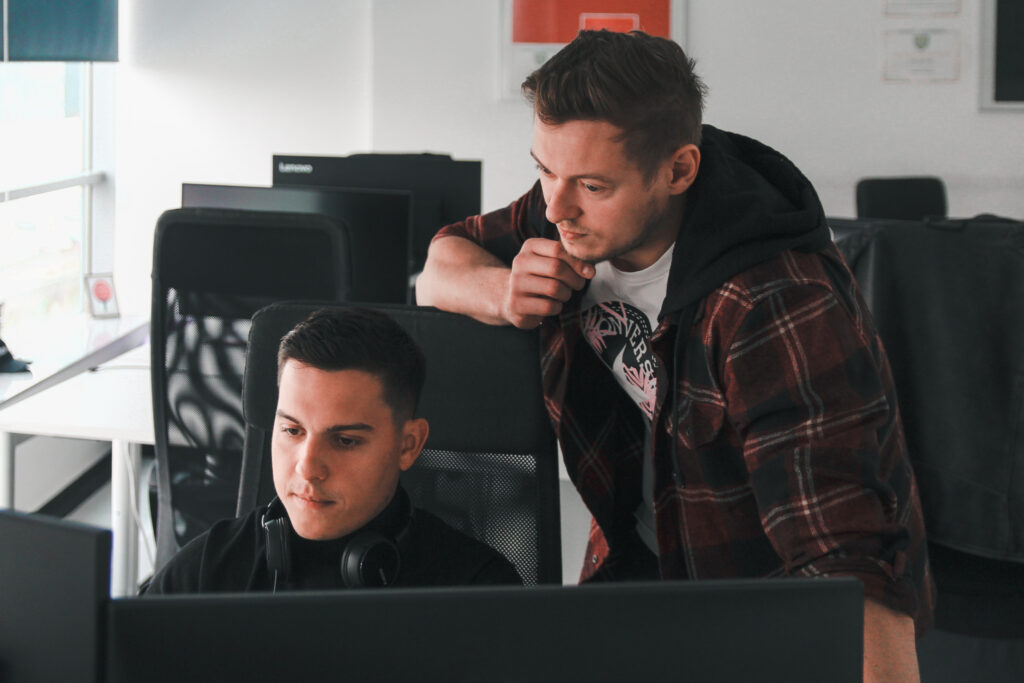
When did you know that teaching/sports wasn’t your lifetime passion and why did you decide on IT?
Boženka: I’ve always enjoyed teaching, which includes helping newcomers, answering my colleague’s questions, or writing documentation in such a way that would be understood clearly. One does not have to work at school to do that. I’d made that decision gradually and did not go straight to IT. Having spent 7 years in academia, I was ready to explore the world out there and try what job might suit me the best.
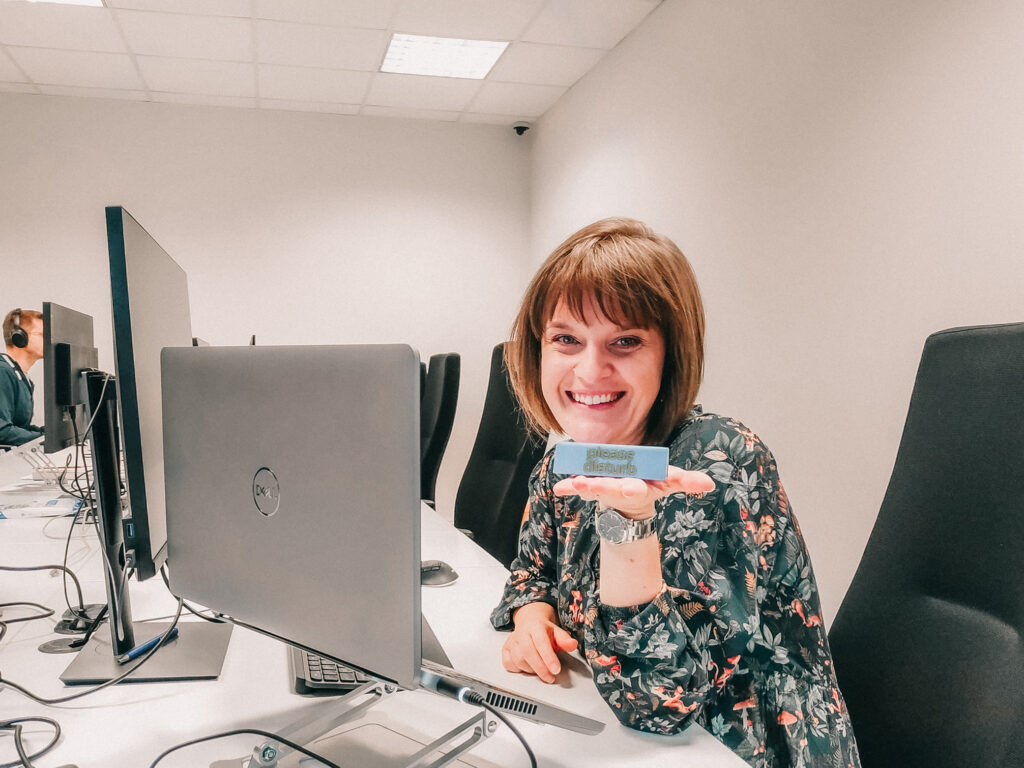
Robo: Already during my studies, I realized that in order to succeed in the sports industry and to even make it profitable, you need to have an adequate web of contacts and oftentimes be completely spineless (Slovak sports industry is still only in diapers, which is an opportunity to move it forward, but without a solid background it is a difficult thing to do. I didn’t have enough courage to act as a reformer of Slovak sports, I also never dreamed about leaving Slovakia and breaking through elsewhere.
If you’re wondering how to change your career most efficiently, our team members have some tips and tricks that you might find helpful. And remember, always keep on learning new things — consistency is the key…
What steps did you take to get to work in IT? How did you gain skills?
Boženka: Eventually, I decided that I wanted to become a tester and started taking courses to make sure I had the necessary skills to apply for an entry-level QA position. At the time, a major IT company in Košice was opening an Academy for Testers. I was accepted and, after the initial training, joined a team that I would be working with for the next 4 years.
Robo: As a fresh graduate, I settled in an IT corporate scattered all around the world. From project to project I’ve gradually improved. In addition, I try to gain knowledge from online courses (pre-covid also courses that required physical presence). But mostly it’s online courses and regular brainstorming with more experienced colleagues.
What/who helped you the most in your transition to your current IT career?
Boženka: When I started working in IT, I had more experienced colleagues around me, each one with a different skill set, to learn from. I was given tasks and opportunities to ask questions, observe what they were doing and absorb as much information as possible. The developers were also great, just me listening to them discussing their work helped me to grow. We sat together and worked together.
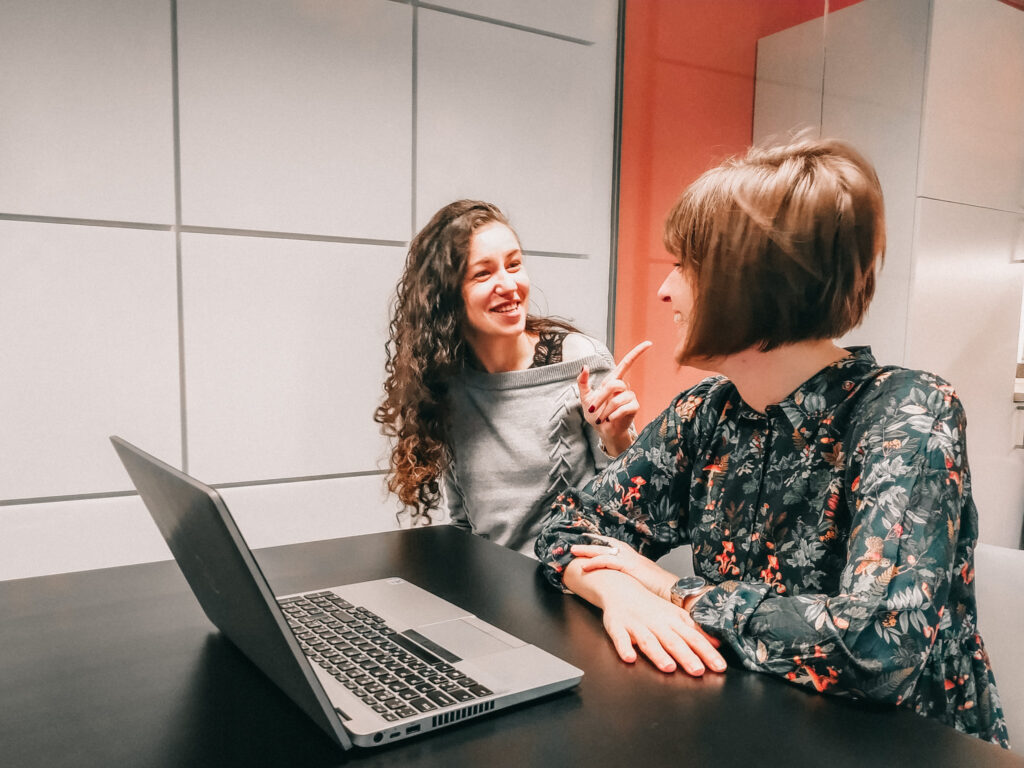
Robo: As for my career at GoHealth, a huge thank you belongs to Peter, our Principal Software Engineer — not only a great colleague but also a dear friend of mine. I am grateful for his help and everything he did for me.
What advice would you give to people who realized that they might have picked the wrong field of study but struggle to get on the right track?
Boženka: That depends on each individual. Some may decide to quit and start working, others switch majors or finish what they have started and take time to plan for the future. My advice would be: Don’t beat yourself up over it. Few professions need a specific qualification and lifelong commitment and few people have that calling. We change and so does the world around us. The worst thing one can do is to decide they do not want to learn new things anymore. That applies to people of all ages, not just students or recent graduates.
Robo: It’s all about asking yourself whether you’re happy with where you are and what you do. If you’re not, it’s time to leave your comfort zone and decide on a specific change. Subsequent exposure to what’s outside the comfort zone will be challenging, but when you’re surrounded by good people that lead you to the right path, it’s much easier.
What do you like to do in your free time? Where do you acquire new information or follow new trends?
Boženka: In my free time as well as at work, I love being with people, communicating and cooperating with them, and creating a community. That is also the best way to learn new things, find inspiration and come up with interesting ideas. No sitting at home and watching the TV for me 🙂 I love walking, preferably in beautiful cities, crafting, going to concerts, museums, and galleries, interesting lectures, and workshops on various topics, also supporting my favorite local cinema and coffee shops, and volunteering for worthy causes.
Robo: I like to spend my free time with family and friends. Besides, I like sports. May those be individual ones such as running, biking, hiking, or skiing, but I also go out with friends to play basketball. I love beer, so I spend an adequate portion of my time in a pub with my friends. I also read a lot, whether it’s a book or various online articles, all depending on what I’m interested in at that particular time.
My dream is to have a workshop/shed at home and dedicate some time to woodworking. That’ll probably be my retirement hobby though.
Does the IT career seem appealing to you? We’re still hiring! Check our career page here.
